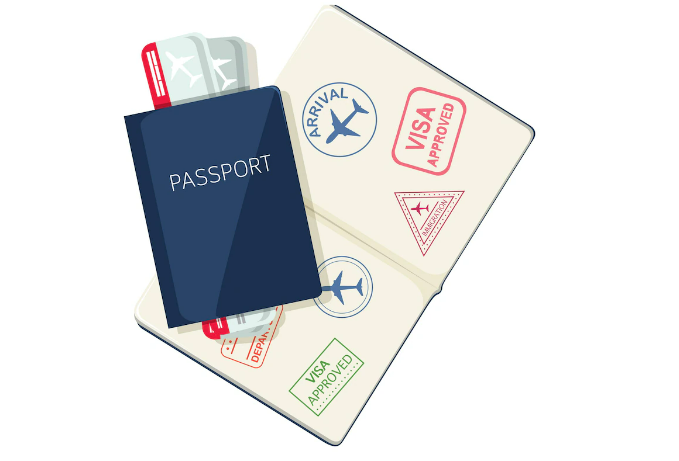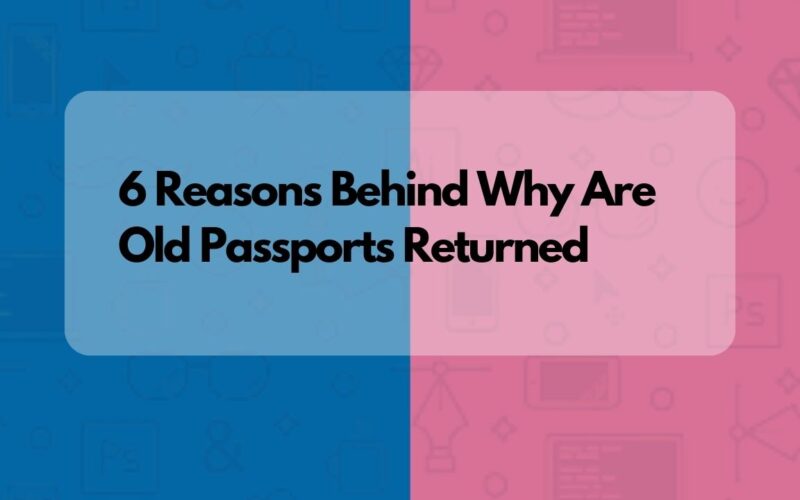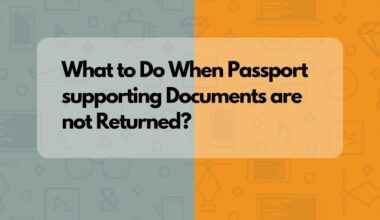As an Amazon Associate, I earn a small commission from qualifying purchases. Learn more about this.
Have you ever wondered why, when you get a new passport, they often send back your old one? It might seem strange, but there are good reasons for it. In this article, we’ll explore why old passports are returned to their owners.
6 Reasons Behind Why Old Passports Are Returned
So, you’ve just gone through the lengthy process of renewing or replacing your passport. You patiently waited for your new passport to arrive, expecting just to receive the fresh, new booklet.
But along with it, there’s that old passport, punctured and neatly sent back to you, even if it’s expired. Why?
Now, basically, you don’t need these passports since
For many of us, this practice might not make immediate sense. But the truth is, returning old passports is rooted in some pretty practical and important reasons.
1. Personal Keepsake and Memories
The first and most obvious reason is sentimental.
Passports are not just legal documents. They’re diaries filled with stamps and visas, each telling a story of a journey, an adventure, or an important life event.

For many, these stamps are like little badges that represent the many places they’ve visited. Giving them back allows individuals to hold onto these memories.
2. Proof of Past Travels
Your old passport serves as proof of your past travels. Sometimes, you might need to show where you’ve been in the past for various reasons.
For example, some countries might want to know if you’ve visited certain places before granting you a visa. Having your old passport handy can make this process smoother.
3. Supporting Documentation
There could be times when you need to prove something important, like your identity or citizenship, especially in tricky situations or legal matters.
Your expired passport, even if it’s not valid for travel, still holds weight as a government-issued ID. It can act as a supporting document alongside other forms of identification.
Related: Here’s the only time an expired passport can be considered valid even after expiration
4. They’re Technically Your Property
While the information inside the passport – like your number, photo, and the electronic chip – belongs to the government, the physical booklet is your property.
The authorities, by default, return your property unless you indicate you don’t want it back.
5. Avoids Potential Misuse
Imagine if old passports were not returned but instead discarded by the authorities.
If they were disposed of improperly, they could fall into the wrong hands, leading to potential misuse.
By returning them to the owner, the risk of them being used for nefarious purposes is minimized. Usually, before sending it back, they’ll mark it as canceled, often by punching a hole or two through it, ensuring it can’t be misused as a valid document.
6. They Serve as Backup
In the rare event that something goes wrong with your new passport – maybe a printing error or another issue – your old passport can act as a temporary backup for identification purposes.
It’s especially handy if you notice the problem while already abroad, where getting a quick replacement might not be as straightforward.
What to do with the old Passport You Receive
While it’s tempting to just shove it in a drawer and forget about it, there are a few things you might consider doing with that old passport.
We covered this properly in a previous article, however, let’s take a quick look at it here.
1. Store it Safely:
First things first, treat your old passport like the important document that it is. Even though it’s no longer valid for travel, it still has a lot of personal information.

Get yourself a safe or a lockable drawer and keep it there alongside other important papers. This isn’t just about sentiment; it’s about protecting your personal data.
2. Use it as a Backup:
Keep in mind, even an expired passport can be useful. If you ever lose your current passport or face another unexpected hiccup while traveling, having your old passport can be a lifesaver.
While it can’t replace the valid one for actual travel, it can serve as a secondary ID in some situations, proving your identity and citizenship.
Related: What to do when your passport supporting documents are not returned
3. Keep it for Record Keeping:
There are certain instances where you might need to show proof of travel.
Maybe it’s for a job application that requires verification of countries you’ve visited, or perhaps a visa application that asks about your travel history. Your old passport can be a gold mine of information for such cases.
4. Proper Disposal:
If you decide that you really don’t want to keep your old passport, don’t just toss it in the trash.
The pages of this booklet contain sensitive information. Shred it or dispose of it as you would with other confidential documents to ensure that your details don’t fall into the wrong hands.
Conclusion
There you have it. It’s not just a random practice; there’s actual logic and reason behind why you get your old passport back.
And while you might not look through it often, there could come a day when you’re glad you have it on hand, be it for a trip down memory lane or something more pressing.







